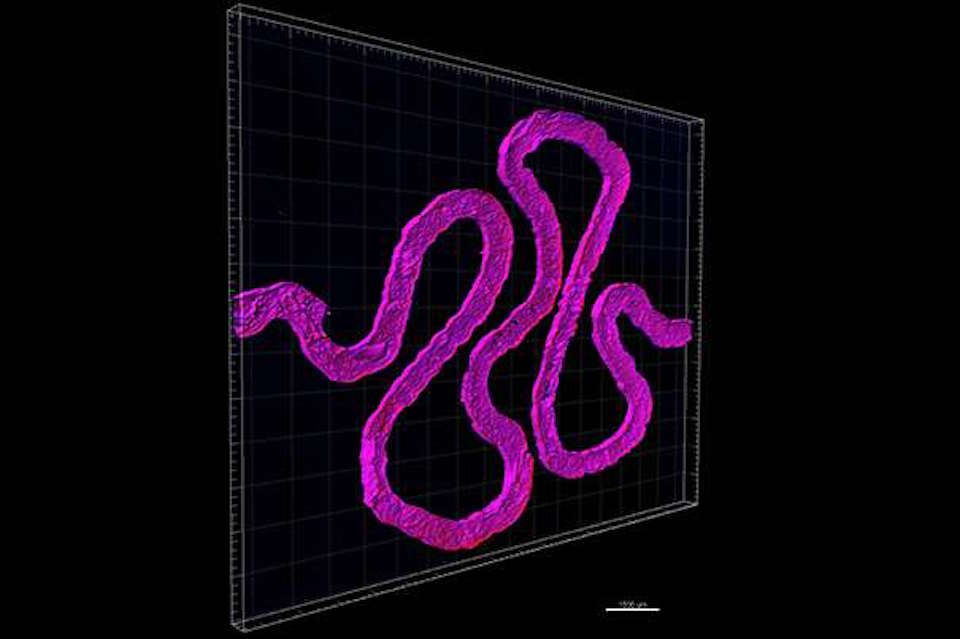Harvard’s Jennifer Lewis and Roche’s Annie Moisan have used 3D printing to fabricate a small but critical subunit of a kidney. The renal architecture contains living epithelial cells.
Earlier bioprinting approaches were adapted to form thick tissues. A 3D-printed silicone gasket was used to cast an engineered extracellular matrix as a base layer. “Fugitive ink” was printed in a shape similar to that of renal proximal tubules, and encapsulated with another layer of extracellular matrix.
The in vitro model functions like living kidney tissue, representing a significant advance from traditional 2D cell culture. The result could be an implant or assistive device, and/or more effective clinical trials.
Click to view Wyss Institute video.
ApplySci’s 6th Wearable Tech + Digital Health + NeuroTech Silicon Valley – February 7-8 2017 @ Stanford | Featuring: Vinod Khosla – Tom Insel – Zhenan Bao – Phillip Alvelda – Nathan Intrator – John Rogers – Mary Lou Jepsen – Vivek Wadhwa – Miguel Nicolelis – Roozbeh Ghaffari –Tarun Wadhwa – Eythor Bender – Unity Stoakes – Mounir Zok – Krishna Shenoy – Karl Deisseroth
